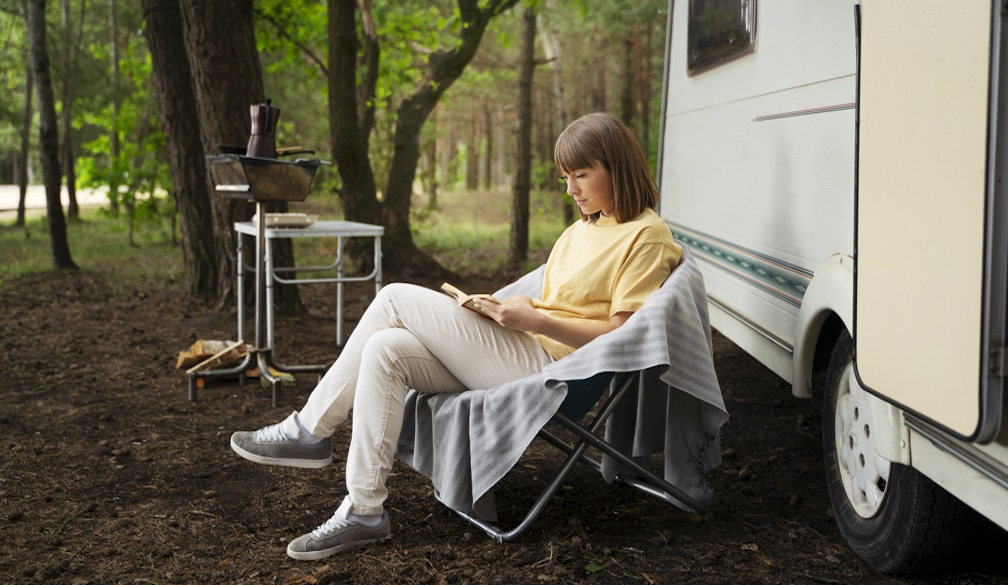Going Off the Beaten Path? Here's How to Power Up Without the Grid

There’s something incredibly freeing about heading off the beaten path. No traffic, no crowded campsites, no glowing screens in every direction — just you, the landscape, and the sounds of nature. But while going off-grid brings a refreshing sense of simplicity, there’s one thing you’ll want to keep sorted before you lose reception: how you’ll power your essentials.
That doesn’t mean lugging around your entire home setup or plugging in at the nearest powered site. It just means having a smart, compact solution that keeps you safe, comfortable, and well-prepared. One of the best options for this kind of setup? A reliable generator for camping — something you’ll thank yourself for when the sun sets and you still need light, cold food, or a phone with a working battery.
Here’s how to stay powered up while still enjoying everything that comes with a remote escape.
Start by Knowing What You Actually Need
Before you even think about gear, make a list of what you need power for. It sounds obvious, but it’s easy to either overpack or forget key items.
Typical essentials include:
- LED lanterns or strip lighting
- Phone and GPS charging
- Portable fridge or esky
- Air mattress pump or fan
- Coffee machine (we won't judge)
Understanding what’s truly essential lets you choose a power solution that matches your needs — not one that overcomplicates things.
Portable Power Options: What's Out There?
There are a few main ways to power devices when you’re off-grid:
1. Solar Panels
Great for topping up small electronics, solar is lightweight and quiet. But it’s weather-dependent and slower to charge high-draw items like fridges or power tools.
2. Battery Packs and Power Stations
Compact and easy to use, these are ideal for phones, laptops, and some lighting. However, they often run out quickly and need either solar or generator input to recharge.
3. Generators
A portable generator offers a dependable, all-conditions solution — especially for longer trips, or if you’re running more than just a light or two. The right one will be compact, efficient, and quiet enough that you’ll forget it’s even running.
Features to Look for in a Camping Generator
Not all generators are built for the outdoors. Look for models that tick the following boxes:
- Low noise output: Nobody wants to disrupt the peace of the bush with a noisy engine.
- Fuel efficiency: The less fuel you have to bring, the better.
- Lightweight and portable: Look for compact designs with carry handles or wheels.
- Safe for sensitive electronics: Inverter generators are best for charging phones, cameras, and laptops.
- Easy maintenance: You don’t want to spend your trip troubleshooting.
Many campers opt for a small inverter generator that balances quiet operation with enough power to run fridges, lights, and chargers at once.
Use Your Generator Efficiently
Bringing a generator doesn’t mean running it 24/7. Be strategic to stretch your fuel and keep your setup light.
- Charge in blocks: Power up everything in one go — lights, batteries, phones — then shut the generator off.
- Combine with solar: Use solar for trickle charging and save the generator for high-demand tasks or bad weather.
- Limit what’s plugged in: Don’t leave devices running unnecessarily — even small draw adds up.
This mix-and-match approach gives you flexibility without burning through fuel or storage space.
Stay Safe and Respectful
If you’re camping off-grid, you’re probably there to enjoy the quiet. So be thoughtful about how and when you run your gear.
A few quick reminders:
- Position your generator away from tents and downwind
- Run it only during daylight hours
- Place it on a level, dry surface
- Never run it inside a tent, awning, or enclosed area
Also, consider other campers if you’re not totally alone. A little consideration goes a long way in preserving the vibe that drew you off-grid in the first place.
The whole point of getting off the grid is to leave the chaos behind — not to create new chaos with flat batteries, warm food, or a fridge full of melted ice. With the right power setup, you can enjoy the best of both worlds: the simplicity of nature and the convenience of modern tools that keep you comfortable, prepared, and safe.
Whether you're camping deep in the bush, on a quiet beach, or somewhere remote and peaceful, packing the right gear means more freedom — not less. And when you've got a plan for power, the rest of the adventure can fall perfectly into place.























